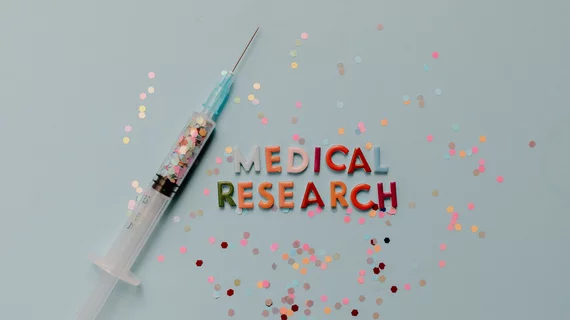Injectable ultrasound chip wirelessly monitors, treats preclinical patients
Biomedical and electrical engineers have invented a probe so small it must be inserted hypodermically yet can monitor vital signs and even stimulate tissue for therapeutic purposes.
Powered by conventional ultrasound, the team’s tiny “implantable mote” passed its investigative audition by wirelessly relaying temperature readings from the brains and limbs of mice.
It also succeeded in using ultrasound to simultaneously stimulate and monitor the sciatic nerve.
The work was conducted at Columbia University and is described in a study currently posted in Science Advances.
The mote bears a microscopic chip that serves as an ultrasound transducer and, according to the study, has potential for monitoring additional biological parameters like pH and chemical sensing.
The device “achieves aggressive miniaturization” by melding together on a single layered construction “a custom low-power temperature sensor chip with a microscale piezoelectric transducer fabricated on top of the chip,” the study authors write.
In coverage by Columbia’s news division, senior author Kenneth Shepard, PhD, says the drive for chip miniaturization was at the project’s heart.
“We wanted to see how far we could push the limits on how small a functioning chip we could make,” Shepard says. “This is a new idea of ‘chip as system’—this is a chip that, alone, with nothing else, is a complete functioning electronic system.”
The advance “should be revolutionary,” he continues, expressing hope the technology will eventually win approval for clinical use in humans.
The item credits the study’s lead author, Chen Shi, PhD, with the device’s design.

